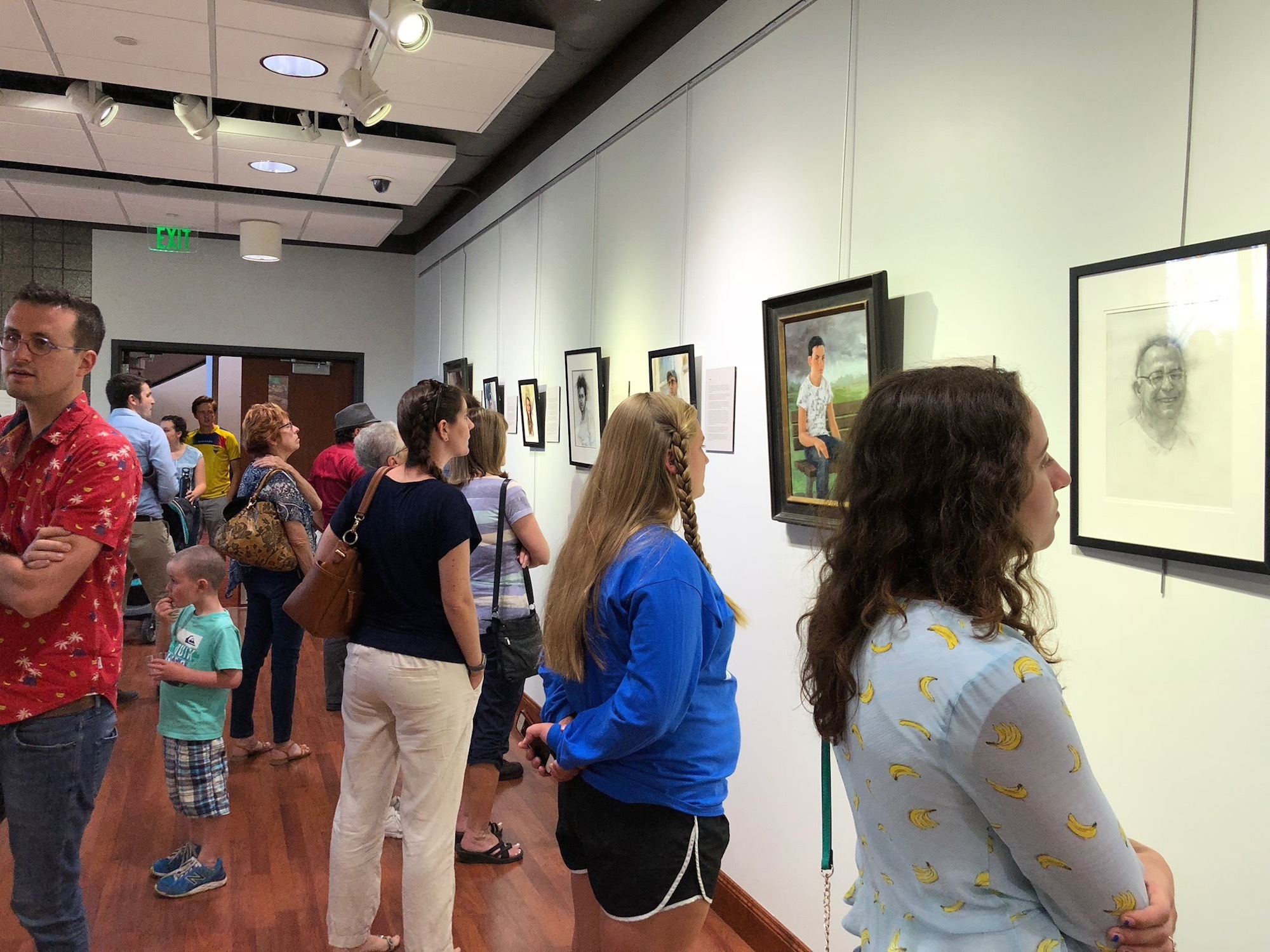IN · HUMANITY Art Exhibit - NOW SHOWING

Written by Elizabeth Thayer
Go experience this incredible Art Exhibit in person!
July 6 - August 27
Covey Center Secure Gallery
425 W Center Street, Provo UT
10:00am - 6:00 pm
Artist reception
August 3, 2018, 6:00-9:00pm
To be human is to be one of many. I am one individual human; because I am human I understand the many.
All of humanity includes a very large number of individuals. The 7,500,000,000 people that live on the earth today are only a mere 7% of all humans to ever walk the earth. As individuals, we tend to categorize ourselves into smaller and smaller groups. It helps define us. I am female, I am Christian, I am Gen X, I am American, I am heterosexual, I am upper-middle class, and so on. Our categories make us feel understood, and safe. They create a comfort zone from which we judge the world. But they also insulate us from the larger reality of being part of the human race. When we categorize ourselves, we tend to categorize others. When a person becomes classified and labeled as a group, they are stripped
of their individual story. This dehumanization makes it easier to shun, insult, ignore, and injure.
Stories are the tools that can pierce the walls of classification. Stories remind us what it means to be human. We understand them because we are human. And telling them strengthens our humanity (singular and plural). A story can bring me out of my self-constructed walls into a dusty courtyard in the Middle East where a god-fearing mother has just lost her child and whose own life is threatened.
Because I have children of my own, I begin to understand her pain. Because I have feared for my children’s lives, I understand some of her fear. Because I have traveled into the foreign unknown, I understand her vulnerability. Now her actions make sense. Her gracious and generous nature has added significance. Real stories of real individuals are more powerful than statistics because they rely on shared experience and open the door for empathy.
When we look someone in the eye, it is harder to hate them. When we hear their story, we begin to understand. And understanding is the first step towards empathy and a better world. Empathy requires not just listening, but a setting aside of our own narrative. We let go of prejudices and preconceptions. We put on another’s shoes, enter their world, and feel as they feel. We begin to see eye to eye.
The more we hear, the more we understand. And when the story is heard, we step back into our own world that has now unexpectedly enlarged. Empathy inspires kindness, understanding, sacrifice, and compromise. Empathy can create bonds that reach through cultures, religions, borders, and generations, bonds that take humanity from the individual and biological meanings into the realm of collective and eternal.
These drawings and paintings represent an effort to bring you into another’s story. They are glimpses into the lives of refugees from the Middle East and Africa. They are only a few of millions who feel rejected, ignored, and forgotten. They want to tell their story. I want to show who they are. If you cannot stand literally face to face, I hope you will take this opportunity to look into their eyes and listen. Discover that their stories are actually all a part of our Story.
To be human is to be one of many. To show humanity is to take many and become one.
Official Statement on the Detention of Refugees and Ongoing Community Violence
With another death in Minnesota and continued violence toward individuals and groups standing up for their communities, we acknowledge the profound fear and uncertainty people are feeling--not just locally, but across the country.
On top of this, there are reports that refugees invited and admitted to our country through the U.S. Refugee Admission Program are now being detained, meaning that our new friends and neighbors feel that fear most acutely.
Refugees have already fled violence and persecution once. They came here legally, seeking safety. In moments like these, we reaffirm our commitment to building communities where refugees and immigrants can live without fear. Where they can go to work, send their children to school, and build lives of dignity and belonging.
We call for due process, accountability, and humanity in all immigration enforcement operations. We call upon our leaders to demand the demilitarization of our neighborhoods and cities. And we call on all of us to continue the work of welcoming and protecting those who have been forcibly displaced from their homes.